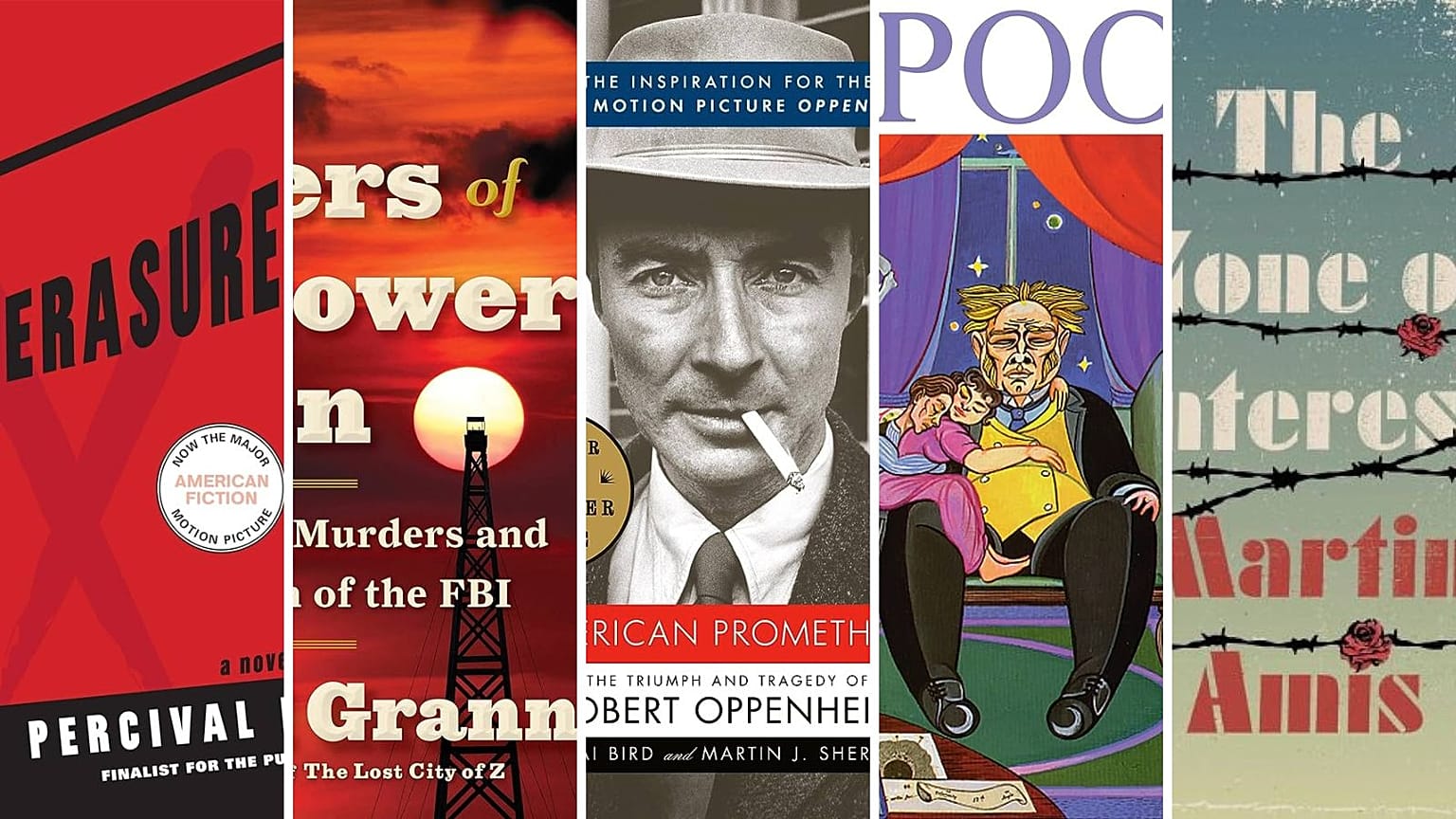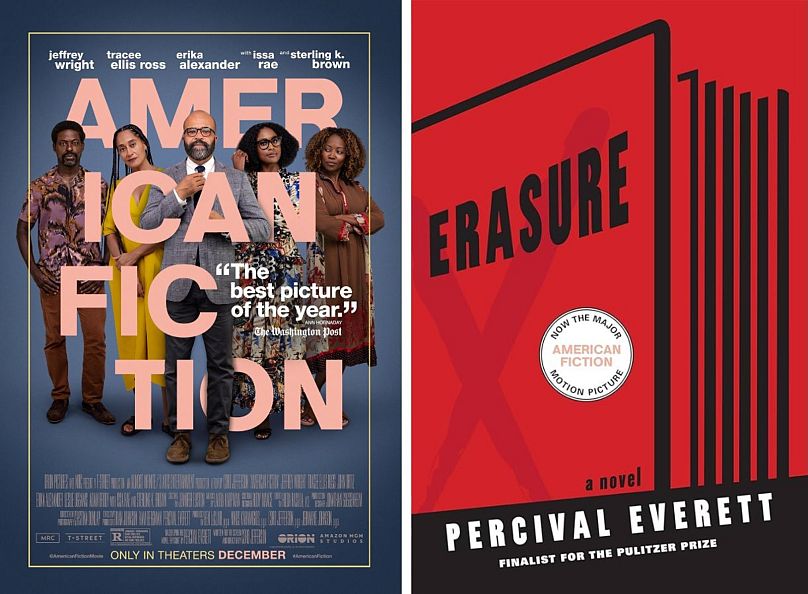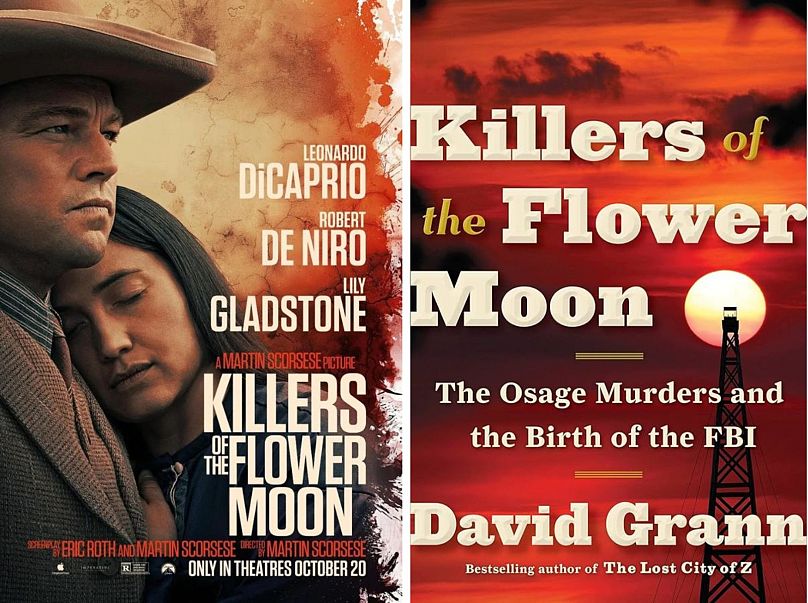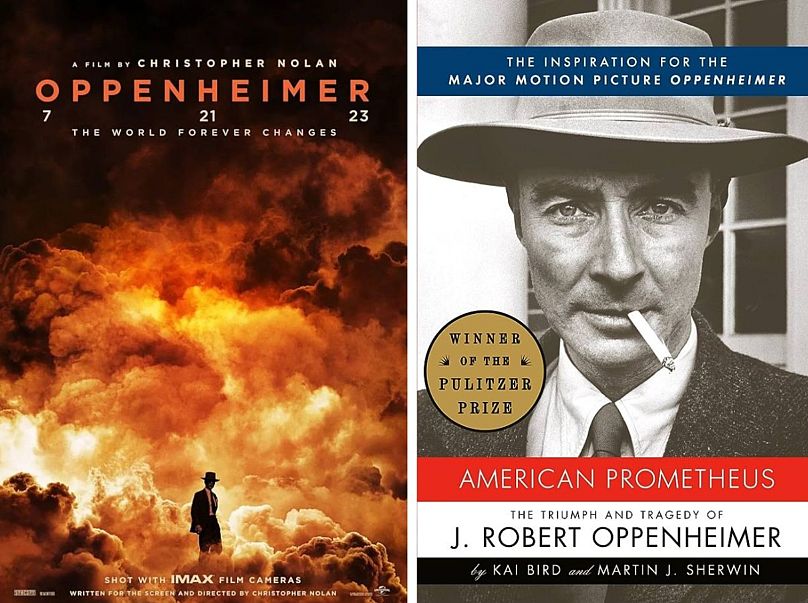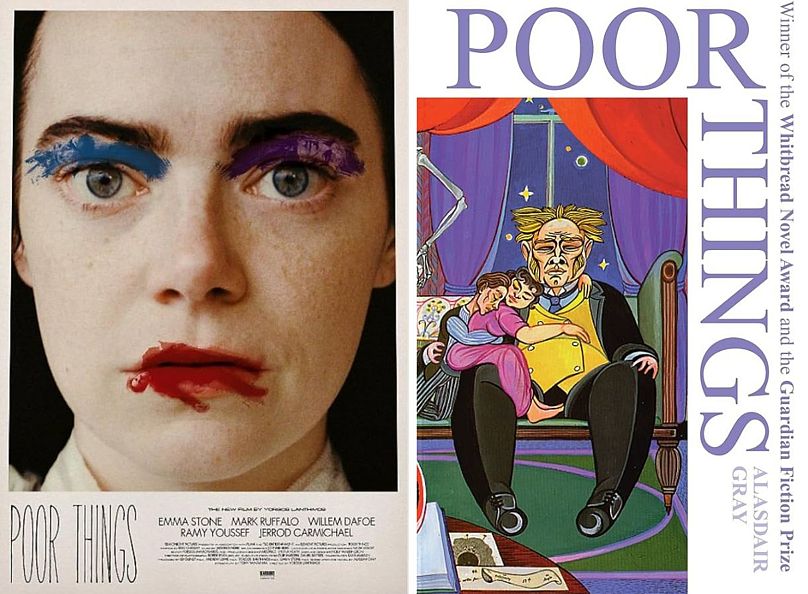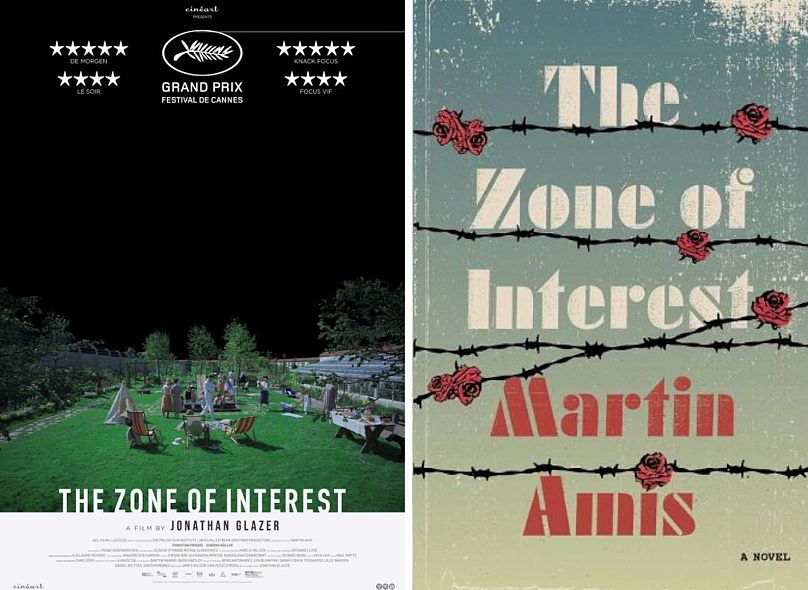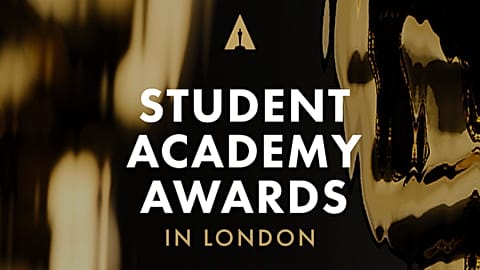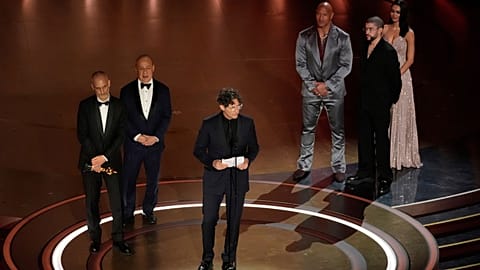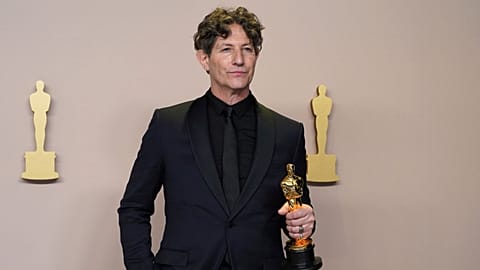It's a good year for literary adaptations in the Best Picture category. But how do the books differ from the films, and which of the source material or the adaptation work better?
Hollywood loves to mine literature as source material for its films, and this year’s Best Picture nominees show the habit is front and centre.
 ADVERTISEMENT
ADVERTISEMENT
 ADVERTISEMENT
ADVERTISEMENT
Five of the 10 Best Pictures are based on books - three novels and two works of historical nonfiction. That’s significantly more than previous years, and serves as a reminder that a film’s success always comes back to words on a page.
Without writers and scriptwriters, there wouldn’t be much to watch or celebrate in the seventh art. Films need directors and actors; they’re made in the editing room; but whether original or adapted, they originate from the page.
Having watched all the Oscar nominated films this year, I’ve also taken it upon myself to read the source material for all the literary nominees, to better fashion a guide which will allow you to impress your friends when discussing the films. Or look like a pretentious git desperate for validation, attempting to justify your credentials as a so-called culture vulture by boring the pants off your loved ones. Whatever.
I'm proceeding alphabetically – not by order of recommendation. Although the first one is a doozy...
American Fiction
Oscar nominated for? Best Picture, Best Actor (Jeffrey Wright), Best Supporting Actor (Sterling K. Brown), Adapted Screenplay, Original Score.
Based on? The 2001 novel “Erasure” by Percival Everett.
What’s it about? The Pulitzer Prize finalist follows frustrated novelist-professor Thelonious "Monk" Ellison, whose agent tells him that publishing houses don't believe his writing to be "Black enough". Out of frustration for the success of a novel called "We's Lives In Da Ghetto", he writes an outlandish caricature of stereotypical "Black" books called "My Pafology" (before changing the title to "Fuck"). The twist is that his satirical “ghetto novel” is mistaken by the liberal elite for “serious literature”. It gets published, rakes up both critical praise and high sales, and he becomes an overnight literary darling.
Worth a read? Absolutely. If the award for Best Picture was dished out in terms of the source material, American Fiction would win. The book, like the film, not only delves into the fallout of turning art into a commodity and the US’ racial contradictions, but also has a poignancy to it. Monk has to navigate the way that publishers and readers value dysfunctional and clichéd narratives, and how writers are pigeonholed; this is mirrored in the audacious structure, as the novel “Fuck” is published in its entirety within "Erasure", thereby creating a fascinating meta-narrative. The character also deals with his family tragedies, including his father’s suicide and his aging mother’s Alzheimer's. The way these strands interweave make “Erasure” a scathing comedy of errors, a brilliant exploration of race, class, family and sex, as well as a subtly devastating novel.
Which is better - book or movie? It’s a faithful adaptation, but the experimental book wins this one.
Killers of the Flower Moon
Oscar nominated for? Best Picture, Best Director (Martin Scorsese), Best Actress (Lily Gladstone), Best Supporting Actor (Robert De Niro), Production Design, Costume Design, Cinematography, Editing, Original Score, Original Song (“Wahzhazhe (A Song For My People)”).
Based on? “Killers of the Flower Moon: The Osage Murders and the Birth of the FBI” by David Grann.
What’s it about? The book investigates one of the most chilling conspiracies in US history: a series of murders of wealthy Osage people that took place in Osage County, Oklahoma, in the early 1920s - after big oil deposits were discovered beneath their land. What initially appeared as a series of isolated killings is soon revealed a calculated plot to exploit the wealth of the Osage people. This riveting book uncovers this complex web of corruption, and details the newly formed FBI's investigation of the murders.
Worth a read? Yes, but brace yourself. It’s dense and harrowing – not a breezy sit-down, this one. Systematic exploitation and slow genocide await. It’s a thorough and meticulously researched recording of a forgotten chapter in American history, one that exposes the rotten foundations of a country and its proud nationhood. It’s clearly written by a diligent journalist, and while there are differences between the book and the film (Scorsese’s three-and-a-half-hour epic only focuses on the first two sections of the book; the time spent on the FBI’s perspective is absent and attention is shifted more towards the perpetrators), Scorsese matches the book’s epic scope. If you enjoyed the film, this is a must-read. And if you were put off by Scorsese’s lengthy effort, Grann’s book is genuinely compelling and will hook you from the get-go.
Which is better - book or movie? Two for two - the book reigns supreme.
Oppenheimer
Oscar nominated for? Best Picture, Best Director (Christopher Nolan), Best Actor (Cillian Murphy), Best Supporting Actor (Robert Downey Jr.), Best Supporting Actress (Emily Blunt), Adapted Screenplay, Production Design, Costume Design, Cinematography, Editing, Makeup and Hairstyling, Sound.
Based on? “American Prometheus: The Triumph And Tragedy of J. Robert Oppenheimer” by Kai Bird and Martin Sherwin.
What’s it about? This 2005 biography chronicles all things J. Robert Oppenheimer, predominantly focusing on his studies, his role as the founder of the theoretical physics program at Berkeley, his direction of the Los Alamos Laboratory during World War II, and his eventual fall from grace due to his 1954 security hearing. Told over five parts sandwiched by a prologue and an epilogue, Parts 4 and 5 are arguably the most interesting, detailing the Trinity Test and the security hearings in the McCarthy era.
Worth a read? This twenty-five-years-in-the-making biography is vast and frequently overwhelming in its detail. Like David Grann’s “Killers of the Flower Moon: The Osage Murders and the Birth of the FBI”, it is meticulously researched and quite the achievement. Although Christopher Nolan faithfully depicts the same chronicling of rise and fall of “the father of the atomic bomb”, it has to be said that the film is far more engaging than the book, which tends to feel like homework. The book compellingly starts with Oppenheimer’s funeral, and is fascinating in the way it tackles the various components of a complex character, not shying away from his life outside the Manhattan Project – specifically his shortcomings. The epilogue, which covers the lives of Oppenheimer's family and children after his death, is quite moving, and while very educational, this is probably the hardest book to recommend in this five-strong list.
Which is better - book or movie? Movie, without a doubt.
Poor Things
Oscar nominated for? Best Picture, Best Director (Yorgos Lanthimos), Best Actress (Emma Stone), Best Supporting Actor (Mark Ruffalo), Adapted Screenplay, Production Design, Costume Design, Cinematography, Editing, Makeup and Hairstyling, Original Score.
Based on? “Poor Things: Episodes from the Early Life of Archibald McCandless M.D., Scottish Public Health Officer” by Alasdair Gray.
What’s it about? 1880s Glasgow. A medical student, Archibald McCandless, finds himself enchanted with Bella Baxter. Supposedly the product of the fiendish scientist Godwin Baxter (because he’s not as benevolent in the film as he is in the book), Bella was resurrected from the dead to fulfil the whims of her benefactor. McCandless’ desire turns to obsession, and Bella elopes with a rakish lawyer, Duncan Wedderburn, with whom she embarks on a hedonistic odyssey.
Worth a read? Very much so. Unlike the film, “Poor Things” wasn’t originally all from Bella’s perspective. The 1992 novel is a denser beast, with a structure meaning that our lead protagonist’s story is told in contradictory ways by several men. Gray utilises various literary devices – including various journal entries, fictious historical documents, letters, portraits, anatomy drawings – a process described by the author as “multi-modal”. This leads to questioning the reliability of the narrators, considering truth distortion, as well as putting reader interpretation at the heart of the reading experience. Poor Things strives for more clarity compared to Gray’s elaborate narrative, and the ending in particular is wildly different from the film’s. Spoiler: We understand that McCandless has created a life for Bella inspired by the prevailing gothic motifs of the period – thereby confirming the tale’s echoes of Mary Shelley's "Frankenstein" - and that what we thought to be true is in fact a likely fantasia. Like Killers of the Flower Moon, both the film and the source material are fascinating to consider in tandem, and will lead you to further appreciate what Yorgos Lanthimos and scriptwriter Tony McNamara have achieved. But if you think you can skip the novel because you’ve seen the film, think again.
Which is better - book or movie? It’s a tie, as both work individually and as a parallel works. Title wise though, we're glad it was curtailed, as Poor Things: Episodes from the Early Life of Archibald McCandless MD, Scottish Public Health Officer would have been a mouthful.
The Zone of Interest
Oscar nominated for? Best Picture, Best Director (Jonathan Glazer), Adapted Screenplay, Sound, International Feature.
Based on? "The Zone of Interest" by Martin Amis.
What’s it about? The 2014 novel by the late British author sees the narrative rotate among three main characters. There’s Paul Doll, a drunken camp commandant; SS-Obersturmführer Thomsen, who is having an affair with Doll's wife; and Szmul Zacharias, a member of the camp’s Sonderkommando (one of the Jewish prisoners charged with disposing of bodies). These three narrative threads create a portrait of Auschwitz and the “zone of interest” - the Nazi euphemism for the death camp.
Worth a read? Certainly, but be warned: Of the five Oscar nominated films for Best Picture, this book is the most distant from the film you see on screen. The Zone of Interest is only loosely based on Amis’ novel, so both works are very different experiences. Amis’ “The Zone of Interest” serves as the basis for Jonathan Glazer's film. The author premised his novel on the Hösses, a real Nazi family who lived within the "zone of interest". Glazer's adaptation dispenses with the other characters to better shift focus to the Höss family. While there are definite traces of Amis’ novel in Glazer’s film, the two almost feel at odds: the book is a historical fiction that has elements of dark humour, while that’s the last thing that can be said about the film – especially with those emotionally punishing final moments. Tonally and conceptually, the film is more complex and less sleazy at times than the black comedy satire of the source material.
Which is better - book or movie? The movie gets this one - Glazer crafted a more oppressive and impactful work.
This year’s Academy Awards take place on Sunday 10 March. Follow Euronews Culture for news, updates and live coverage throughout the film industry's biggest and most prestigious event.














